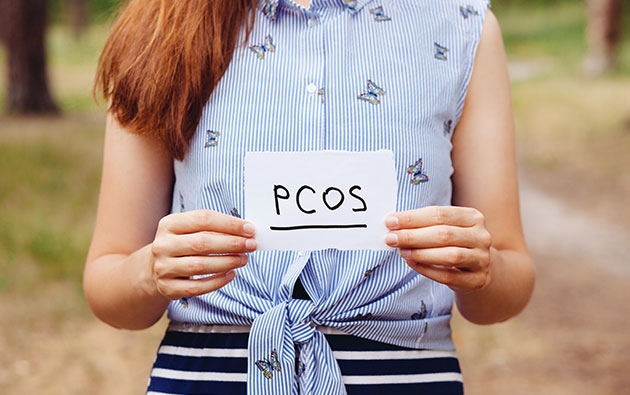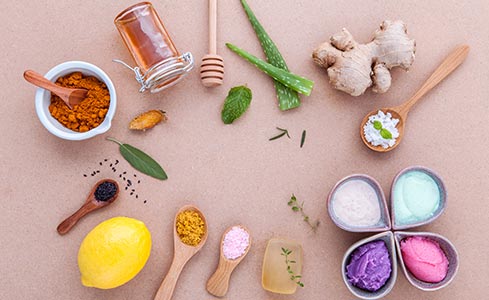
Acne is a devastating skin condition that can cause serious emotional problems in patients, ranging from embarrassment and frustration to depression and social withdrawal. It usually occurs when the hair follicles get clogged with excess oil, dead skin cells or bacteria.
According to dermatologists, a number of women with acne also suffer from polycystic ovary syndrome (PCOS), which is a hormonal condition that affects women of reproductive age. While the body relies on the pituitary gland’s signals to produce the right amount of progesterone, estrogen, and testosterone, PCOS disturbs these signals. In such a scenario, the levels of estrogen and progesterone drop while the levels of testosterone increase in the body.
This increase in the levels of testosterone may cause the sebaceous glands to produce excess oil that can lead to the development of acne breakouts. PCOS-related acne occurs in the areas that are sensitive to hormones such as the cheeks, chin, jawline, and upper neck. Women with PCOS tend to get acne in the form of tender knots under the skin instead of small bumps on the skin.
If you are suffering from PCOS-related acne, it is important to visit a doctor for the right treatment at the earliest. However, certain lifestyle changes can help to reduce the appearance of your acne. Such lifestyle changes include:
According to doctors, women suffering from PCOS are susceptible to inflammation that occurs due to insulin resistance, high testosterone levels, and acne. In order to reduce inflammation and insulin resistance, you should include anti-inflammatory foods such as tomatoes, spinach, walnuts, olive oil, turmeric, etc. into your dietary pattern. Eliminate high glycemic carbohydrates and sugar from your diet as they can aggravate your acne by increasing testosterone levels. Other than this, remove all forms of dairy products from your diet. Moreover, you can take supplements as prescribed by your doctor to manage inflammation.
Following a good skin care routine can contribute to the early treatment of acne breakouts. Wash your face with the best acne soap twice a day. Apply an oil-free moisturizer or a clear gel for acne after each cleansing session. Avoid picking or scratching blemishes and use non-comedogenic skin care products only. Besides, you can also use home remedies like aloe vera, honey, turmeric, or lemon for your acne treatment.
Adopting a healthy diet along with a good skin care regimen can be helpful in providing you an acne-free skin. However, if you are suffering severe PCOS-related acne, you should immediately visit a dermatologist for effective treatment.
Disclaimer This blog solely intended for the educational/informational/awareness purposes and is not a substitute for any professional medical advice, diagnosis or treatment. Please consult your doctor/healthcare professional before acting on the information provided on the blog. Reliance on any or all information provided in the blog, is solely at your own risk and responsibility. Mankind Pharma Limited shall not be held liable, in any circumstance whatsoever.

Acne is a skin condition that occurs when your hair follicles become plugged with oil and dead skin cells.

it is absolutely imperative to know its type. Acne can be inflammatory or non-inflammatory which further has different lesions, as mentioned below.

Acne starts occurring in teenagers due to an increase in the level of Androgen production. Androgen is a hormone which signals the body to produce more sebum, the oil produced by the sebaceous glands.

Acne is a skin condition that occurs when your hair follicles become plugged with oil and dead skin cells. It often causes whiteheads, blackheads or pimples, and usually appears on the face, forehead, chest, upper back and shoulders. Acne is most common among teenagers, though it affects people of all ages.

Debunk acne myths by following a proper skincare regimen. Taking good care of your skin can help you achieve a glowing and acne-free skin.